Supportive Government Policies
Government policies play a crucial role in shaping the Veterinary Artificial Insemination Market. Many countries are implementing supportive regulations and initiatives aimed at promoting advanced breeding techniques, including artificial insemination. These policies often include funding for research and development, as well as subsidies for farmers adopting these technologies. For instance, some governments are providing financial incentives to encourage the use of artificial insemination as a means to enhance livestock quality and productivity. Such initiatives not only facilitate access to advanced reproductive technologies but also contribute to the overall growth of the Veterinary Artificial Insemination Market. As these supportive measures continue to evolve, they are likely to create a more favorable environment for the adoption of artificial insemination practices among livestock producers.
Increasing Awareness of Animal Health
The Veterinary Artificial Insemination Market is benefiting from a growing awareness of animal health and welfare among producers and consumers alike. As stakeholders become more informed about the benefits of artificial insemination, including its role in disease control and genetic improvement, the adoption of these practices is likely to rise. Enhanced animal health leads to better productivity and lower veterinary costs, which are appealing factors for livestock producers. Furthermore, regulatory bodies are increasingly emphasizing the importance of animal welfare, which aligns with the principles of artificial insemination that promote healthier breeding practices. This heightened awareness is expected to drive the Veterinary Artificial Insemination Market forward, as more producers recognize the long-term benefits of investing in advanced reproductive technologies.
Rising Demand for High-Quality Livestock
The Veterinary Artificial Insemination Market is experiencing a notable increase in demand for high-quality livestock. This trend is driven by the growing need for improved genetic traits in animals, which enhances productivity and disease resistance. Farmers and breeders are increasingly adopting artificial insemination techniques to ensure superior offspring, thereby maximizing their investment. According to recent data, the market for artificial insemination in livestock is projected to grow at a compound annual growth rate of approximately 6% over the next few years. This growth is indicative of a broader shift towards more efficient breeding practices, which are essential for meeting the rising global food demand. As such, the Veterinary Artificial Insemination Market is poised for expansion, reflecting the agricultural sector's commitment to innovation and sustainability.
Advancements in Reproductive Technologies
Technological innovations are significantly shaping the Veterinary Artificial Insemination Market. The introduction of advanced reproductive technologies, such as sexed semen and embryo transfer, is enhancing the efficiency and effectiveness of artificial insemination procedures. These technologies allow for better selection of desirable traits, which is crucial for livestock producers aiming to improve herd quality. Recent studies indicate that the use of sexed semen can increase the likelihood of producing female offspring, which are often more valuable in dairy production. As these technologies become more accessible, the Veterinary Artificial Insemination Market is likely to witness increased adoption rates among breeders and farmers, further driving market growth. The integration of these advancements not only improves reproductive outcomes but also aligns with the industry's focus on maximizing genetic potential.
Global Population Growth and Food Security
The Veterinary Artificial Insemination Market is significantly influenced by the challenges posed by global population growth and the corresponding demand for food security. As the world population continues to rise, the pressure on agricultural systems to produce sufficient food becomes increasingly pronounced. Artificial insemination offers a viable solution to enhance livestock productivity and ensure a stable food supply. By improving the genetic quality of livestock, producers can achieve higher yields and better resource efficiency. Recent projections suggest that the demand for meat and dairy products will increase substantially in the coming years, further underscoring the importance of advanced breeding techniques. Consequently, the Veterinary Artificial Insemination Market is likely to expand as stakeholders seek innovative solutions to meet the growing food demands of an ever-increasing population.


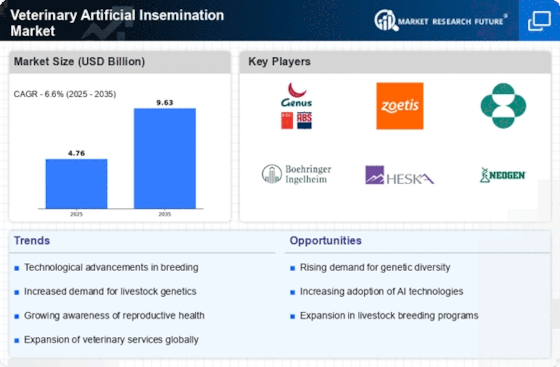

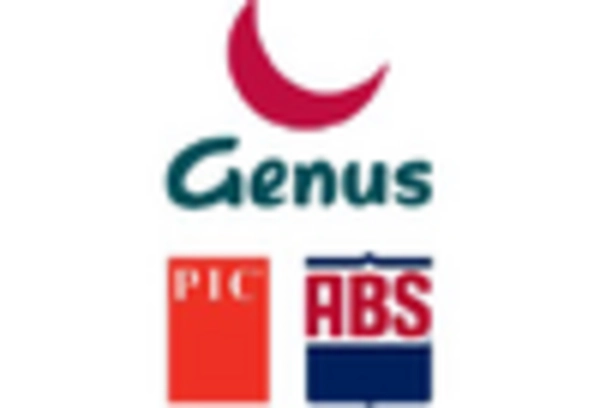
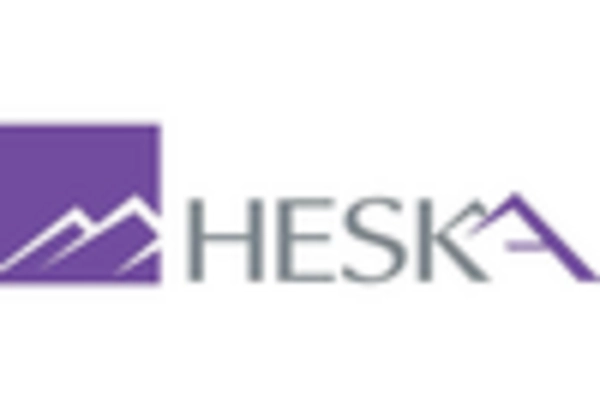

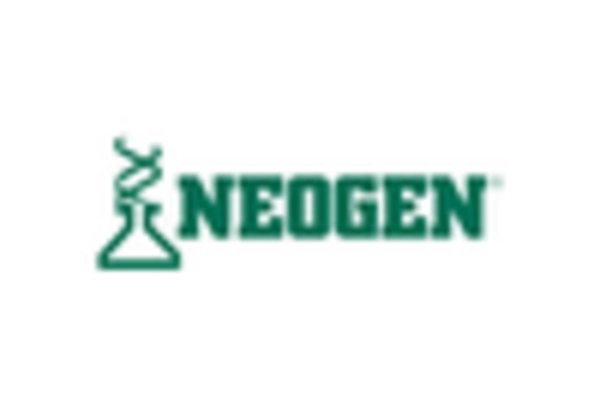
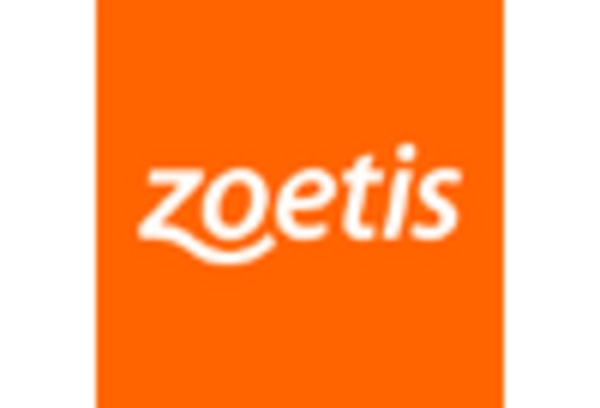









Leave a Comment